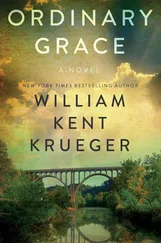“What do you think?”
“I, ah, I really don’t have an opinion.”
“A dangerous state of mind, Ingram. If you don’t have an opinion, you can’t function.” Rilke smiled.
Ingram smiled back: safer to say nothing at these moments.
“Here’s what’s going to happen,” Rilke said, standing, and hoiking his trouser waist up over his gut. “We submit Zembla-4 to the licensing authorities in the US and then the UK. The advertorials will begin to appear, first in learned medical journals, then in selected high-class outlets of the global media— New Yorker, Time, Economist, El Pais, Wall Street Journal, Le Figaro , etcetera. Who can complain if a drug company declares that it is trying to eradicate asthma? Who can object to a mission statement? Then Rilke Pharmaceutical will offer to buy Calenture-Deutz at a moment of my choosing. But all this will happen only, I repeat, only after Adam Kindred is apprehended and dealt with.”
“Yeeesssss,” Ingram said slowly drawing the word out, like a piece of chewing gum, his mind whirring like a malfunctioning clockwork toy. “What’s, um, your timescale? When will all this start to happen?”
“Maybe next month, all being well,” Rilke said. “You’ll be an even richer man, Ingram. And the world will have its first fully functioning anti-asthma drug. It’s a no-lose situation.”
♦
Ingram was told that Colonel Fryzer could be found in the rose garden, so he set off through the well-tended grounds of Trelawny Gables in search of his father. He wandered along the meandering pathways of this high-priced, private, sheltered housing, passing uniformed nurses, white-overalled assistants pushing trolleys laden with meals, dry-cleaning, vases of flowers, wondering vaguely if this were the sort of place in which he would end his days — a five-star ante-room to oblivion with cordon-bleu catering. He was also wondering vaguely about his meeting with Alfredo Rilke and what was its real import, its gravitas. Keegan and de Freitas were staying, that much was clear, but it appeared to him there was a near unseemly rush to have Zembla-4 licensed. Philip Wang had always advocated the slow-but-steady route, that was how the Bynogol licence had gone through so smoothly…Ingram paused to sniff at a flower: he was almost sure something was going on behind his back — that he was not in full control of Calenture-Deutz any more was both as clear as day and very troubling.
His father disliked Trelawny Gables with a calm but fierce intensity, Ingram knew, but he endured its customs and rituals with amused pragmatism. He didn’t blame his son that he had ended up here — at least Ingram hoped not as he now saw his father from a distance, spraying insecticide on rose bushes in a small arbour by the perimeter wall. He was a tall, lean, grey-haired man wearing an olive-green sleeveless fleece, a shirt and tie and neatly pressed blue jeans. Ingram had foresworn jeans at the age of forty — no mature or middle-aged man should be seen dead in them, he reasoned, but he had to admit they rather suited his father, now eighty-seven years old. Perhaps jeans were to be taken up again in one’s eighties…
“Hello, Pa,” he said, kissing him on both cheeks. “Looking well.”
Colonel Gregor Fryzer looked at his son closely — scrutinising me, Ingram thought, as if I were on parade. Ingram smiled at this old man’s foible but then worried — absurdly, he knew — that some scent of Phyllis was emanating from him, some odour of sex that only octogenarians could sniff out.
“You seem a bit nervous, Ingram. Bit edgy.”
“Not in the least.”
“I’ve always thought there was something a little fourbe about you.”
“What does ‘ fourbe ’ mean?”
“Look it up when you get home.”
They walked back to his small ground-floor flat — one bedroom with a sitting room, bathroom and kitchenette. The walls were covered with his father’s watercolours — still lifes in the main. His father’s pastimes were tying flies for fishing — that he sold — and painting.
The Colonel went into the kitchen and returned with two gins and tonic, one ice cube in each, no slice of lemon. He handed one to Ingram and sat down and fitted a cigarette into a holder and lit it.
“What can I do for you, Ingram?”
“I just came to say hello — see how you were getting along. You know I pop up on a Saturday.”
“You haven’t been here for two months. Thank god for Forty.”
“Has Forty been here?”
“He comes up twice a week. He’s got some kind of a contract for the gardens.”
“Oh yes, of course.” This was news to Ingram. Forty was his youngest son. “We’ve been very busy,” he said, changing the subject. “Will you come to supper tonight? The whole family will be there. I thought it might—”
“No thanks.”
“I’ll send a car, there and back.”
“No thanks — there’s a documentary on Channel 4 I want to watch.”
Ingram nodded — at least he’d asked. Meredith would have had a seizure if the Colonel had accepted. He felt the usual cocktail of emotions when confronted by his father: admiration, irritation, affection, frustration, pride, distaste. It astonished him, more often than not, to think this difficult old bastard had sired him. But sometimes all he wanted from his father was a sign of affection — a squeeze of his shoulder, a genuine smile. They sat there sipping their warmish gins and tonic like two strangers in a waiting room, bound only by their blood-line. He thought of his long-dead mother: time had transformed her — a diffident, neurotic woman — into something close to myth, a domestic saint. How he missed her.
“Actually, I wanted to ask your design,” Ingram began, carefully.
“Ask my design?”
“Sorry — advice.”
“Oh, yes?” The Colonel sounded surprised.
“Yes. I think I may be…” Ingram paused — suddenly having to articulate this intuition made it seem all the more real. “I think I may be about to be the victim of a boardroom putsch. I think it’ll look like I’m in charge, but I won’t be.”
“I don’t understand your nasty little world, Ingram — finance, banking, pharmaceuticals. Who are these people plotting against you? Get rid of them. Cut out the cancer.”
“I can’t do that, unfortunately.”
“Then be cleverer than they are: second-guess them, pre-empt them, frustrate them.” The Colonel removed his smoked cigarette from his holder and lit up another. “Get something on them, Ingram. Find a way of hurting them. Get some ammunition.”
Not a bad idea, Ingram thought, wondering if this were possible, if he had enough time…Perhaps there were things he could do…
“Thanks, Pa. I’d better be running along.”
“Finish your gin before you go.”
Ingram drank it down. Sometimes he disliked gin — he thought it made him depressed.
♦
When Ingram arrived home he took down the French dictionary from its shelf in the library and looked up the word ‘ fourbe ’. Sly, shifty and crafty were the synonyms on offer. Ingram felt a little hurt, for a second or two — who did his father think was paying for Trelawny Gables? His army pension? — and then decided that it must have been the after-effects of his encounter with Rilke that had made him seem preoccupied and thoughtful. True, his brain had been working hard, his words of affection to his father had been token, insincere. Whatever quantities of guile he possessed were being summoned into action, like troops in reserve being called up, expelling his usual cultured, focussed politesse: typical of the Colonel to have sensed this.
He poured himself a large Scotch in his dressing room and drank it before coming downstairs to his birthday party. His three children were already present — Guy, Araminta and Fortunatus — and a stranger, he noticed, someone quickly introduced as Forty’s boyfriend, Rodinaldo.
Читать дальше












